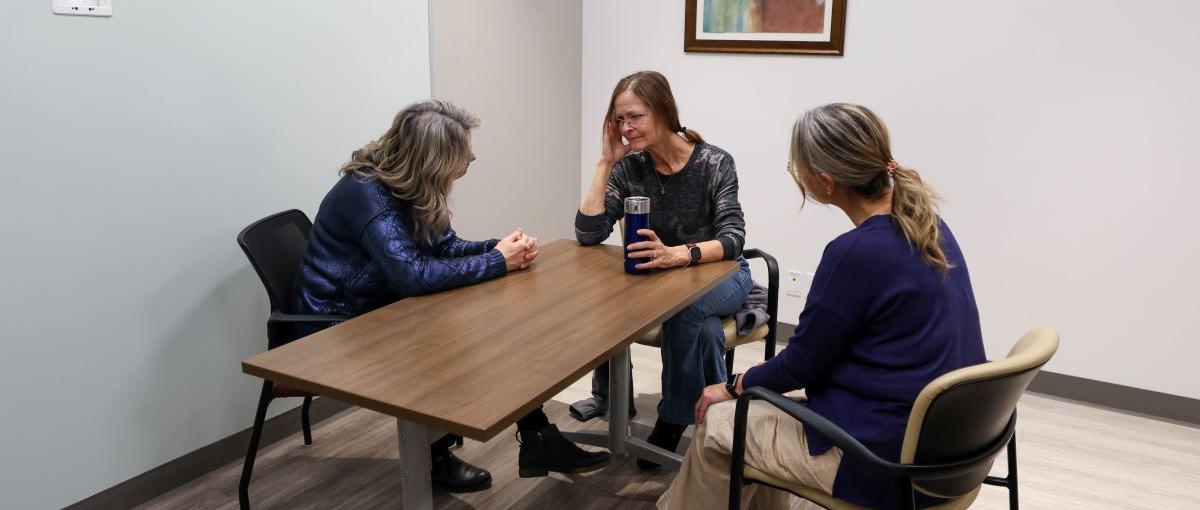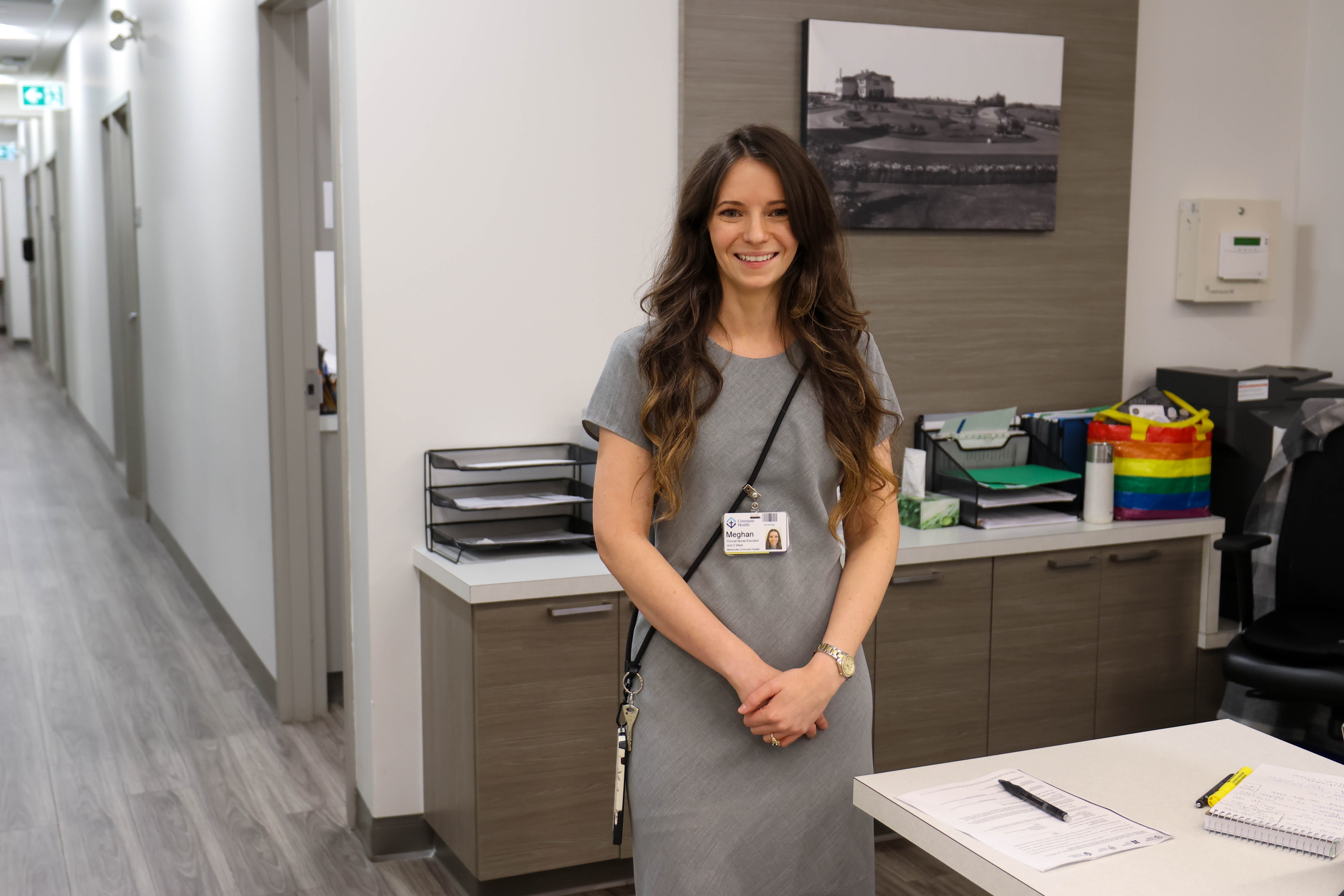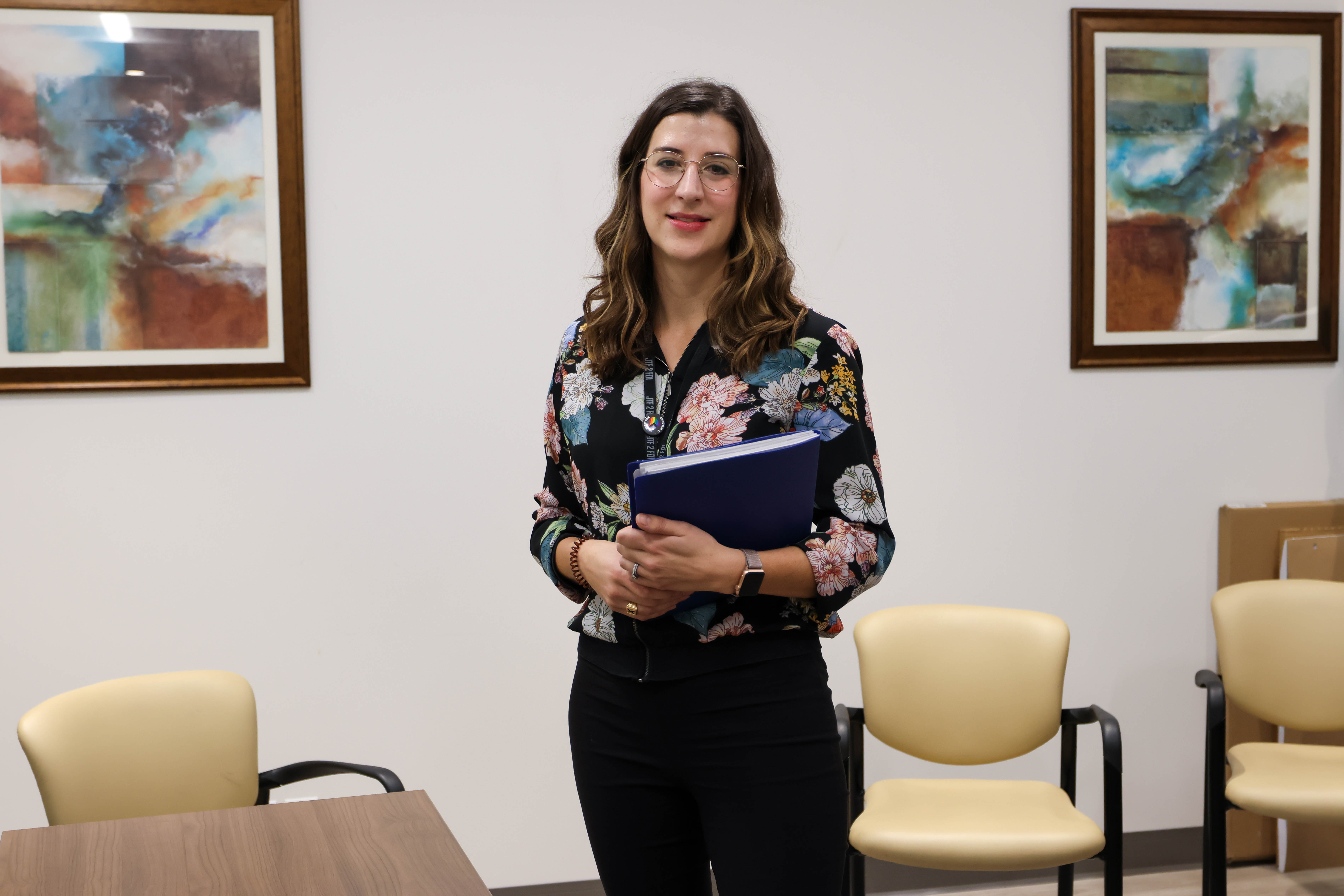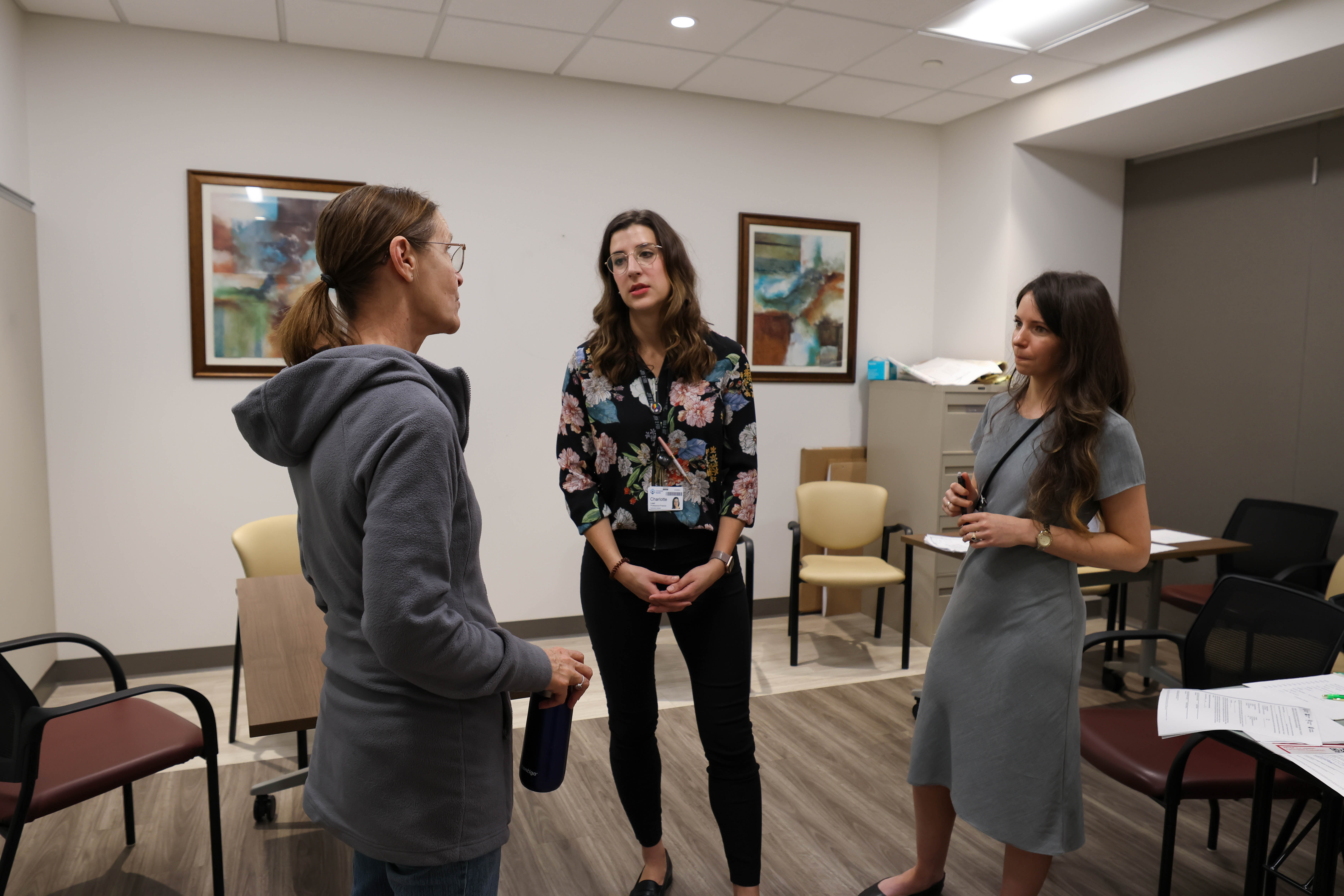Enhancing suicide prevention training for staff in community mental health

January 2, 2025
By Peter Rybar, social media advisor
It began with a phone call — a nurse from Covenant Health’s Community Geriatric Psychiatry (CGP) program reaching out to a new geriatric patient for a routine follow-up. Something felt off. Trusting her instincts, the nurse visited the patient at home, where she discovered the patient had attempted to take their own life — a situation requiring immediate intervention.
“Thankfully, they got there in time, recognized the urgency of the situation and were able to activate the emergency response system in a timely manner,” says Katryna Anderson, care manager for the CGP program, which helps seniors recover from mental illness and addictions in their own home or community from its offices at Westmount Mall in Edmonton. “Care was provided quickly, and this patient received ongoing care while admitted to hospital following the incident.”
The incident prompted Katryna and her team to address a critical need. Through Covenant Health’s Reporting and Learning System (RLS), which tracks patient safety incidents, the team, including the portfolio patient safety consultant, was able to analyze various client events involving suicidal behaviour and is using them as an opportunity to improve how it assesses and responds to suicide risks among geriatric patients. It recently launched enhanced education as well as policy reviews to equip staff with the tools and confidence they need to save lives in the community.
“Our staff did everything they could with the tools they had,” says Katryna. “But those events left us questioning: Could we have done more? Is there anything we could have done differently? We’re always looking for ways to improve our standards of care.”
The enhanced education program, which includes training sessions, simulations and planned education days, focuses on identifying both protective and risk factors and crafting effective safety plans. The program also emphasizes multidisciplinary collaboration, ensuring that nurses, physicians and social workers can address these cases holistically.
Covenant Health is also reviewing its mental health policies, ensuring consistency across outpatient settings. “This is about more than one department — it’s about setting a new standard and being consistent with our care,” says Katryna.
Meghan Edlund, the clinical nurse educator for mental health programs who helped develop the enhanced education, knows that CGP program clients present very specific situations not seen in other populations.

"Caring for geriatric patients brings a unique set of challenges. They may be dealing with cognitive decline, physical frailty or feelings of loss and regret. Our training helps staff approach these cases with sensitivity and nuance."
Clinical nurse educator
Meghan sees the training sessions as a two-way street. They’re an opportunity to deliver learnings and also to receive valuable feedback for future educational opportunities.
“Our clinicians are extremely talented; they’re very proficient at their jobs,” she says. “This education is not only to boost confidence in key concepts, but I'm also using these sessions to identify if there's anything else that the program needs to do to better support our nurses. I want to be proactive in getting ahead of emergencies.”
To better prepare the CGP staff for life-saving moments, Meghan is working closely alongside Charlotte Oostveen, simulation lead, to integrate immersive simulations as part of the education program.
“Simulation gives staff a chance to practice in a safe environment before they encounter these situations in real life,” says Charlotte.

Charlotte Oostveen, simulation lead
Unlike a classroom lecture or online module, simulation immerses participants in a realistic scenario. For the CGP training, Charlotte designed a script based on challenges staff might encounter during a home visit, complete with an older actor portraying a distressed and resistant patient.
The realism has paid off, says Charlotte. “Staff have come out saying it felt like a real assessment. They are able to practice their responses and refine their approach, knowing they are supported the entire time.”

The simulation actor (left), Charlotte (centre) and Meghan (right) debrief after a simulation.
Having a safe environment for learning is crucial, especially for community nurses who often face unpredictable situations.
“Sometimes you don’t know what you’re getting into — you could be walking into a house with bed bugs and scabies or a hoarding situation with mice and flies,” says Carla Buchan, a registered psychiatric nurse with the CGP program. “Having this kind of preparation is invaluable.”
With 42 years of healthcare experience, Carla sees the value of regular education. “This isn’t just for the younger staff. It’s important for everyone in the field,” she says. “Things like the type of medications being used, resources available and general best practices are always changing.”
Supporting staff through education is like putting on your own oxygen mask first in an emergency — it’s the first step toward ensuring patient safety, says Meghan.
“When we invest in our staff, we’re investing in our patients. The more prepared we are, the greater the difference we can make in the moments that matter most.”